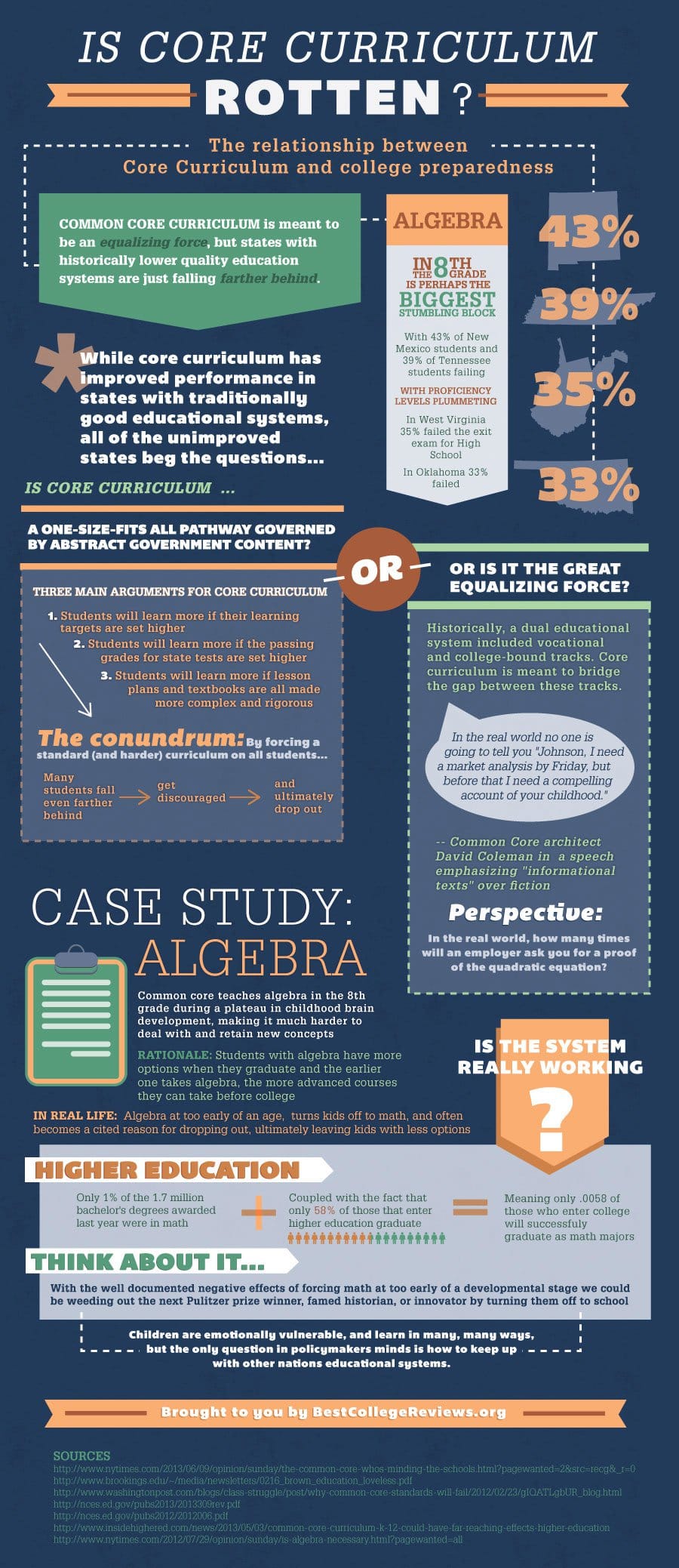Some States Continue to Struggle Despite Core Curriculum Standards

The goal for a national core curriculum, like Common Core, is to ensure that all students who graduate with a U.S. education are capable of participating in the national economy. Proponents argue students should be prepared for the demands of an increasingly globalized workforce or higher education, no matter where they were educated.
However, indicators show states with historically lower quality education systems are falling farther behind in spite core curriculum's implementation.
In states like New Mexico, Tennessee, West Virginia, and Oklahoma, anywhere from 33 percent to as much as 43 percent of high school students failed their state's algebra exit examinations. Yet states that have not struggled with education traditionally have seen improvement over the last few years.
This suggests that curriculum may not be the culprit of sagging proficiency scores. Perhaps more diverse paths into the national economy should be made available to students. Whether it be through vocational training or hands-on apprenticeships in high school, providing the flexibility for students who aren't particularly suited to the traditional classroom is something a common curriculum fails to take into account.

Source: Bestcollegereviews


